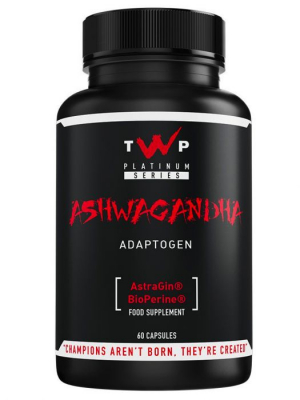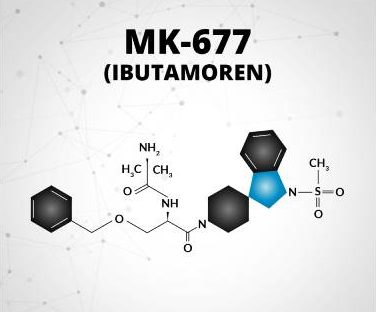5% OFF FIRST ORDER WITH CODE FRST5 AT CHECKOUT!
Ashwagandha: Benefits, Uses, and Scientific Insights of the Ancient Herb

Ashwagandha: The Ancient Herb with Modern Health Benefits
Ashwagandha (Withania somnifera), also known as Indian ginseng or winter cherry, is one of the most revered herbs in Ayurvedic medicine, a holistic healing system that originated in India more than 3,000 years ago. Ashwagandha, which translates to "smell of the horse" in Sanskrit (ashwa means "horse" and gandha means "smell"), is named for its characteristic odor and the belief that it imparts the strength and vitality of a horse. Over millennia, this herb has been recognized for its numerous therapeutic properties and is now gaining popularity worldwide for its adaptogenic and stress-reducing benefits.
In this article, we will explore the historical significance of Ashwagandha, delve into its traditional uses, examine the growing body of modern scientific research, and discuss its potential health benefits, safety profile, and recommended usage.
The Historical and Cultural Importance of Ashwagandha
Ashwagandha has been a staple of Ayurvedic medicine for centuries, often referred to as a "Rasayana" – a tonic believed to rejuvenate the body, promote longevity, and enhance overall well-being. In ancient Ayurvedic texts, Ashwagandha is praised for its ability to balance the body’s energy and provide relief from various ailments.
Ashwagandha in Ayurveda
According to Ayurveda, the body is governed by three doshas, or energies: Vata (wind), Pitta (fire), and Kapha (earth). These doshas must be in balance for optimal health. Ashwagandha is believed to balance Vata and Kapha doshas, helping to restore equilibrium in the body. It is considered a rejuvenative herb (Rasayana), promoting vitality, strength, and immunity, especially during times of stress or fatigue.
Traditionally, Ashwagandha was used to enhance stamina, improve mental clarity, and support the reproductive system. It was also used to treat conditions such as arthritis, insomnia, and digestive disorders. Its role as an adaptogen, helping the body cope with physical and emotional stress, has made it one of the most highly regarded herbs in Ayurvedic practice.
Mythology and Symbolism
In Indian mythology, Ashwagandha is associated with the power of horses, symbolizing strength, virility, and vitality. It has long been considered a powerful herb for improving sexual health and male fertility. In some cultural stories, Ashwagandha is seen as a gift from the gods, meant to provide health and longevity to those who consume it.
The herb has been part of religious rituals and offerings, signifying its esteemed place in ancient traditions. Its use in spiritual practices reflects the holistic approach of Ayurveda, which aims to balance the mind, body, and spirit.
Ashwagandha's Composition: The Key to Its Healing Power
Ashwagandha’s unique combination of chemical constituents is what gives it such a broad spectrum of therapeutic effects. The primary active compounds found in the roots of Ashwagandha are withanolides, a group of steroidal lactones that are thought to be responsible for its adaptogenic and anti-inflammatory properties.
Some of the most studied constituents in Ashwagandha include:
- Withanolides: These are steroidal compounds with anti-inflammatory, anti-cancer, and stress-reducing properties. They help the body resist physical, chemical, and biological stressors.
- Alkaloids: These compounds, found in many medicinal plants, have a variety of pharmacological effects, including pain relief and anti-inflammatory actions.
- Saponins: Saponins contribute to the herb’s ability to modulate the immune system, protect the liver, and support cardiovascular health.
- Flavonoids: These antioxidants help combat oxidative stress and may protect the body against chronic diseases.
The synergy of these compounds is what makes Ashwagandha so versatile and effective in promoting overall health.
Health Benefits of Ashwagandha: What Science Says
While Ashwagandha has been used for thousands of years in traditional medicine, modern scientific research is now validating many of its health benefits. Studies are continually being published on Ashwagandha’s effects on stress, anxiety, cognition, and physical performance, among other areas.
Here, we explore some of the most well-researched benefits of Ashwagandha:
1. Stress Reduction and Anxiety Relief
One of the most well-known benefits of Ashwagandha is its ability to reduce stress and anxiety. As an adaptogen, it helps the body adapt to stress and restores balance to the adrenal glands, which regulate the body's stress response.
Several studies have shown that Ashwagandha can significantly reduce levels of cortisol, the body’s primary stress hormone. Chronic high levels of cortisol are associated with a variety of health problems, including weight gain, anxiety, depression, and weakened immune function. By lowering cortisol levels, Ashwagandha helps to reduce the physical and emotional symptoms of stress.
A randomized, double-blind study published in 2012 found that participants who took a high-concentration full-spectrum extract of Ashwagandha experienced a significant reduction in stress and anxiety levels compared to those who took a placebo. The study concluded that Ashwagandha can help improve resistance to stress and enhance overall quality of life.
2. Improved Cognitive Function
Ashwagandha has been found to enhance brain function and may protect against neurodegenerative diseases. Its neuroprotective properties are attributed to its ability to reduce oxidative stress and inflammation in the brain.
A study published in the "Journal of Dietary Supplements" in 2017 investigated the effects of Ashwagandha on cognitive function in healthy adults. The participants who took Ashwagandha showed significant improvements in memory, attention, and information processing speed compared to the placebo group. These findings suggest that Ashwagandha may be useful for enhancing cognitive performance and preventing age-related cognitive decline.
In animal studies, Ashwagandha has demonstrated the ability to promote the regeneration of nerve cells and even reverse some of the damage caused by neurodegenerative conditions like Alzheimer’s disease. However, more research in humans is needed to confirm these effects.
3. Support for Mental Health: Depression and Anxiety
Beyond stress relief, Ashwagandha shows promise as a natural treatment for anxiety and depression. Its anxiolytic effects, meaning it helps reduce anxiety, are thought to be related to its ability to lower cortisol and modulate the body's response to stress.
In a 2000 study published in "Phytomedicine," Ashwagandha extract was shown to be as effective as the anti-anxiety drug lorazepam in reducing anxiety in rats. Human studies have also supported the herb’s anxiolytic properties, suggesting it could be a beneficial alternative to pharmaceutical treatments for anxiety and depression, especially for those who prefer natural remedies.
While Ashwagandha is not a replacement for antidepressants or anti-anxiety medication, it may offer a complementary therapy that helps alleviate symptoms without the side effects associated with some pharmaceuticals.
4. Enhanced Physical Performance and Strength
Ashwagandha is often used as a supplement to enhance athletic performance and build muscle strength. It is believed to boost energy levels, increase endurance, and reduce fatigue, making it popular among athletes and bodybuilders.
In a study published in the "Journal of the International Society of Sports Nutrition," researchers found that Ashwagandha supplementation was associated with significant increases in muscle mass and strength in men undergoing resistance training. Additionally, participants who took Ashwagandha experienced reduced exercise-induced muscle damage, faster recovery, and lower levels of fatigue.
These effects are likely due to Ashwagandha’s ability to increase the production of testosterone and its impact on the nervous system, allowing for better adaptation to physical stress.
5. Hormonal Balance and Reproductive Health
Ashwagandha has been traditionally used to support sexual health and fertility in both men and women. It is particularly known for its ability to enhance libido, improve sperm quality, and support hormonal balance.
For men, Ashwagandha has been shown to increase testosterone levels and improve sperm count and motility. A study published in "Evidence-Based Complementary and Alternative Medicine" found that men who took Ashwagandha supplements showed significant improvements in semen quality, increased testosterone levels, and higher antioxidant levels.
In women, Ashwagandha may help regulate menstrual cycles, alleviate symptoms of menopause, and improve fertility by balancing hormones such as estrogen and progesterone.
6. Immune System Support
Ashwagandha has immunomodulatory properties, meaning it helps regulate and support the immune system. It enhances the body's ability to fight infections and may provide protection against autoimmune diseases by reducing inflammation.
Studies suggest that Ashwagandha can increase the activity of natural killer cells, a type of immune cell that plays a crucial role in fighting off viruses and tumors. Additionally, its anti-inflammatory effects help protect the body against chronic diseases linked to inflammation, such as heart disease and arthritis.
7. Anti-Inflammatory and Antioxidant Effects
Chronic inflammation is at the root of many modern diseases, including heart disease, diabetes, and cancer. Ashwagandha has potent anti-inflammatory and antioxidant properties that help reduce inflammation and neutralize free radicals, which are unstable molecules that can damage cells and contribute to aging and disease.
Several studies have shown that Ashwagandha can reduce markers of inflammation, such as C-reactive protein (CRP), and improve antioxidant levels in the body. By reducing oxidative stress and inflammation, Ashwagandha may help lower the risk of developing chronic diseases and promote overall longevity.
8. Potential Cancer-Fighting Properties
Emerging research suggests that Ashwagandha may have anti-cancer properties. Laboratory studies have found that withanolides in Ashwagandha can induce apoptosis (programmed cell death) in cancer

 Polish
Polish






























Comments